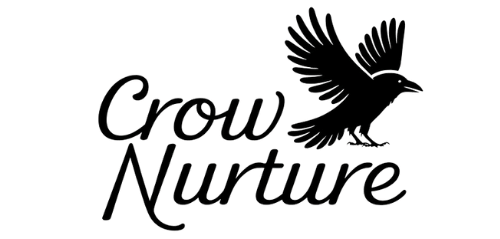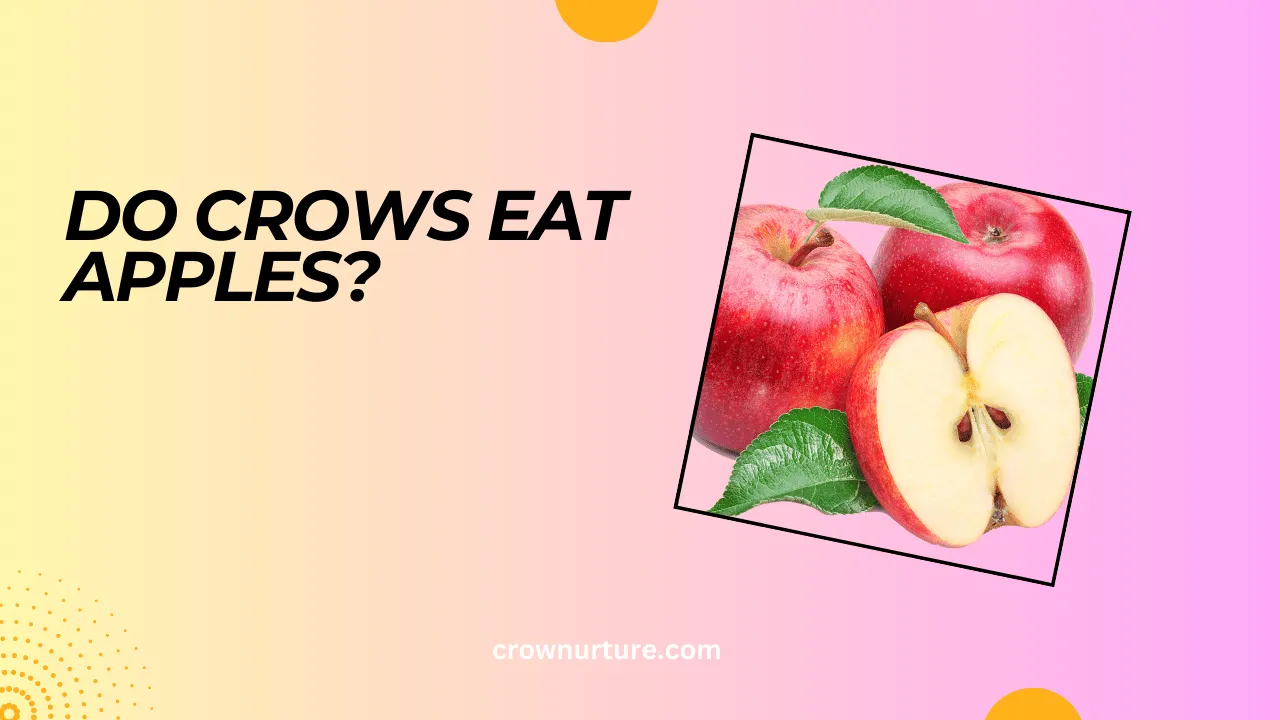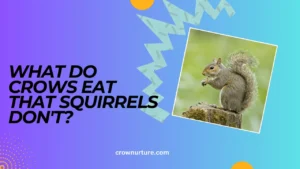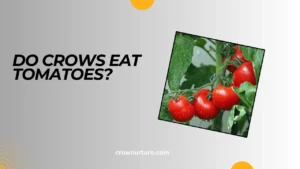If you’ve ever watched a crow pecking at fallen fruit, you might have wondered: do these intelligent birds actually enjoy apples? Crows, known for their sharp wit and problem-solving skills, are also omnivores with surprisingly diverse diets.
But their fruit-eating habits, especially when it comes to apples, reveal a deeper connection between these birds and their environment.
Crows are opportunistic feeders, which means they adapt their diets based on what’s available. Apples, with their sweet and nutritious qualities, are an easy target.
Whether in orchards, parks, or backyards, crows actively forage for fruit, balancing their meals with insects, seeds, and even carrion. This adaptability not only showcases their intelligence but also sparks questions about their ecological role and their impact on human agriculture.
Understanding the relationship between crows and apples isn’t just a niche curiosity; it ties into larger themes of biodiversity, human-wildlife coexistence, and the ecological balance.
Why do crows eat apples? What does this mean for ecosystems and farmers? Let’s dive into the fascinating world of these clever birds and their love for fruit.
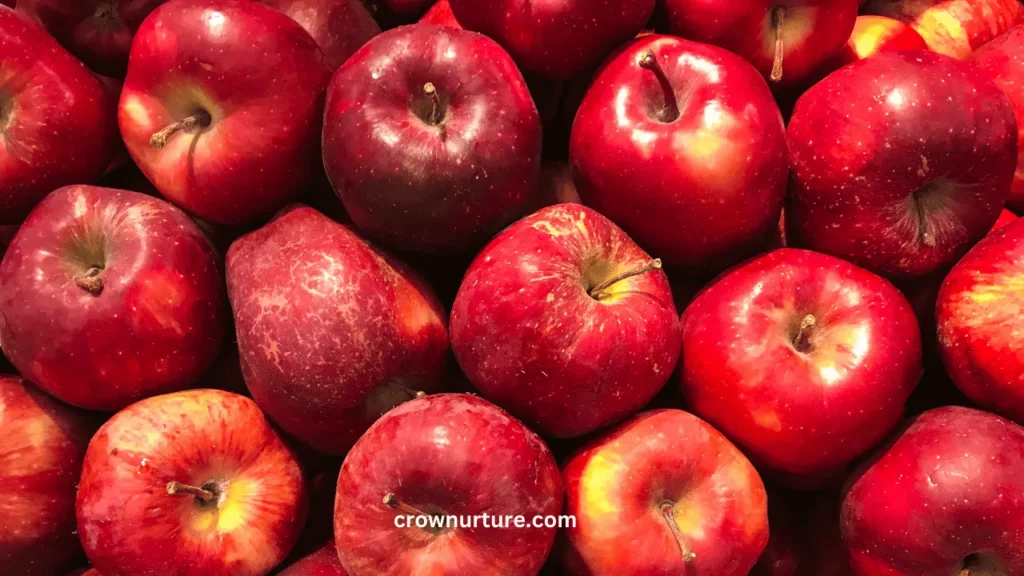
Contents
1. Crow Diet: Omnivorous Opportunists
- Diverse Diet:
Crows are omnivorous opportunists, consuming whatever is available in their surroundings. Their diet includes insects, grains, small animals, carrion, and a variety of fruits. - Fruits in Their Diet:
Fruits like apples, berries, and cherries are a seasonal favorite for crows, providing them with sugars and nutrients during foraging. - Flexibility:
This dietary flexibility allows crows to thrive in different habitats, from urban areas to rural farmland. Their adaptability is key to their survival.
2. Foraging Behavior
- Intelligence and Problem-Solving:
Crows are among the most intelligent birds, using tools and strategies to access food sources, including apples on trees or fallen fruit. - Group Foraging:
These birds often forage in groups, which helps them locate abundant food sources like orchards or discarded apples in parks. - Food Caching:
Crows are known to store food for later, hiding pieces of fruit to retrieve when food is scarce. This behavior showcases their planning skills.
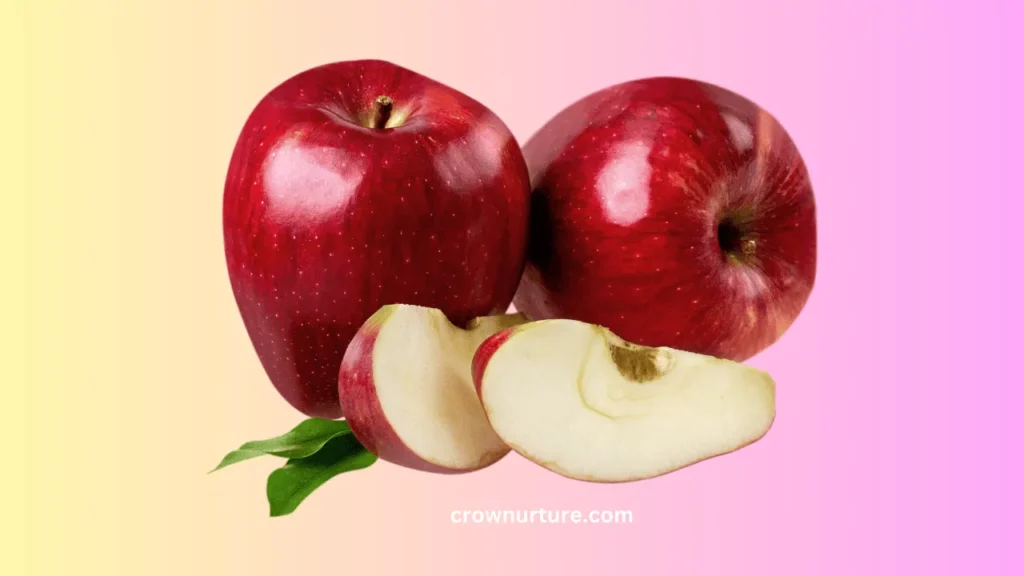
3. Fruit Consumption and Ecosystem Impact
- Seed Dispersal:
By eating apples and excreting seeds elsewhere, crows contribute to plant reproduction and forest regeneration. - Impact on Agriculture:
While crows help ecosystems, their fruit consumption can lead to significant damage to crops, especially in orchards where they target ripe apples. - Ecological Role:
Despite occasional conflicts with humans, crows play a vital role in the ecosystem by balancing insect populations and aiding in seed dispersal.
4. Human-Crow Conflicts
- Agricultural Concerns:
Apple farmers often face challenges with crows raiding their orchards, leading to crop losses and financial strain. - Urban Challenges:
In cities, crows may scavenge discarded fruit, leaving messes or creating noise, which some people find annoying. - Conflict Mitigation:
Strategies like bird netting, scare tactics, and habitat management can reduce conflicts while allowing crows to coexist peacefully with humans.
5. The Crow’s Resourcefulness
- Adapting to Urban Spaces:
Crows have learned to thrive in cities, feeding on apples from trash bins, backyards, or park trees, showcasing their resourceful nature. - Survival Skills:
Their ability to incorporate diverse food sources, like apples, into their diet underscores their resilience and adaptability. - Beneficial Behavior:
While they sometimes cause conflicts, crows also help by cleaning up fallen fruit and reducing waste in human environments.
Conclusion
Crows do indeed eat apples, adding them to their diverse diet of seeds, insects, carrion, and other foods. These intelligent birds are resourceful foragers, using their adaptability to thrive in various habitats.
Whether aiding in seed dispersal or feeding on discarded fruit, their behavior highlights the intricate relationship between wildlife and the environment.
While crows’ fruit-eating habits can lead to conflicts with farmers or urban residents, they also remind us of the broader ecological roles these birds play. Finding a balance between human needs and wildlife habits is essential to fostering coexistence.
By understanding and appreciating the complex behavior of crows, we can work toward solutions that benefit both nature and society.
Crows and apples may seem like an unlikely pairing, but their interaction reveals a world of fascinating dynamics. Whether you see them as pests or partners in nature, there’s no denying the cleverness and resilience of these remarkable birds.
FAQs
1. Do crows eat apples?
Yes, crows eat apples, both from trees and as fallen fruit on the ground.
2. Why do crows eat apples?
Apples are a rich source of sugar and nutrients, making them an easy and beneficial food for crows.
3. Do crows harm apple orchards?
Crows can damage apple orchards by eating ripe fruit, leading to losses for farmers.
4. How do crows eat apples?
Crows use their sharp beaks to peck at apples, often consuming small chunks or targeting soft, overripe fruit.
5. Do crows eat other fruits?
Yes, crows eat a variety of fruits, including berries, cherries, and pears, depending on availability.
6. Are apples good for crows?
Apples are safe and nutritious for crows, providing them with energy and essential nutrients.
